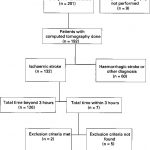Contents
What Is Bacopa Good for, and Are There Side Effects?
Bacopa is an important herb in traditional Indian medicine. It’s safe to take and rarely causes severe side effects.
Bacopa, also known as brahmi or water hyssop, is an herb with purple flowers and oblong leaves found in wetlands and rice fields. It’s native to Australia and India and is popular for supplementing memory and brain health.
People have used bacopa for centuries to treat anxiety, epilepsy, and memory problems. Today, it is commonly used as a brain tonic to improve memory and attention. Bacopa can be found as a single herb or in multi-herb blends in different forms, such as tinctures, teas, tablets, and dried powder capsules.
Health benefits of bacopa
There is promising early research on the health benefits of bacopa.
Adaptogen
Bacopa is an adaptogen herb that might help reverse the effects of stress. In an animal study, experts found that bacopa lowered stress markers and reduced ulcer scores.
Lowers inflammation
Bacopa contains bacosides, which might help lower inflammation. Studies show that bacopa extract can block inflammatory chemicals and reduce inflammation in animals.
Improves brain function
Bacopa has been used for centuries to stimulate brain function and memory. Studies show that bacopa increases blood flow to the brain and improves mental function and overall brain health.
Might improve ADHD
Bacopa has been found to improve symptoms of ADHD in children in a small clinical study. It improved memory, sentence repetition, and performance on memory tests.
Might help seizures
Bacopa has anti-epilepsy effects and may lower seizure frequency. However, more research is needed to determine its effectiveness.
QUESTION
Side effects of bacopa
Bacopa is safe to take for up to 12 weeks, and severe side effects are rare. In rare cases, it may:
Upset digestion
The most common side effect of bacopa supplements is digestive problems, including nausea, diarrhea, upset stomach, and fatigue. It might also slow gut transit time and increase digestive juice levels.
Slow your heart rate
Bacopa may slow the heart rate, which can be a problem for those with bradycardia.
Worsen lung conditions
Bacopa may increase fluid production in the lungs, which can worsen lung conditions such as asthma or emphysema.
Interact with drugs
Bacopa might interact with certain medications, including blood thinners, blood pressure drugs, diabetes medications, chemotherapy drugs, and some antidepressants.
Talk to your doctor
Bacopa has great potential for brain health and might boost mood and memory. If you’re considering taking bacopa or any other supplement, it’s always a good idea to talk to your doctor first.
Sources: American Botanical Council, Evidence-Based Complementary & Alternative Medicine, Frontiers in Pharmacology, Journal of American Heart Association, Journal of Ethnopharmacology, Journal of Traditional and Complementary Medicine, Mayo Clinic, Merck Manual Consumer Version, Mount Sinai, Nemours Children’s Health, Pharmacology, Biochemistry, and Behavior, Rejuvenation Research, University of California Los Angeles Health


